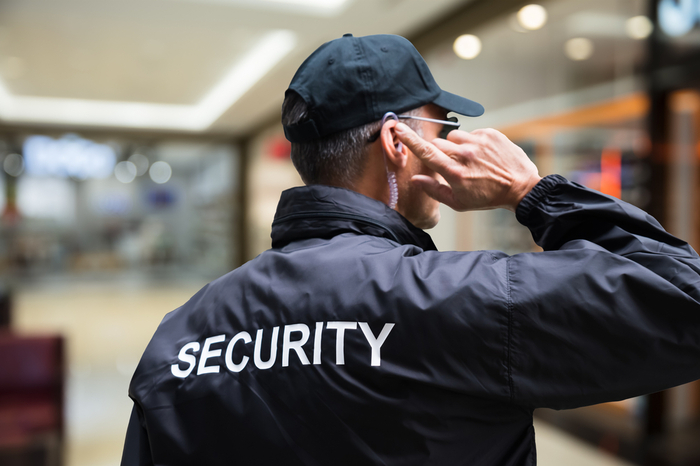Negligent Security vs Premises Liability

Each day in Baltimore City, you can read or see news stories about how someone sustained injuries or was killed while at a commercial establishment. Gas stations, bars or clubs, business parking lots, and convenience stores are all common spaces for criminal activity, and your chances of being the victim of a crime at one of these locations are high.
Victims rely on the criminal justice system to hold the perpetrators accountable, but what about the business? Is it possible to hold them responsible for your injuries or the death of a loved one in an encounter on the property?
Knowing whether your case falls under negligent security vs premise liability will help you understand if you’re entitled to compensation. In this article negligent security lawyer John Leppler explains the differences and what they mean for you below.
Negligent Security
Negligent or inadequate security focuses on the property owner’s duty to keep visitors or customers safe. When you visit a commercial establishment, you’ll likely assume that the property owner has taken steps to keep you safe. However, if they haven’t put measures in place to ensure that you stay safe, you could file a lawsuit if you sustained injuries or a loved one was killed during an event like a robbery at the business.
Negligent security also has ties to premise liability law. If a property owner can’t keep the property safe, they expose themselves to premise liability claims. An attorney may find the property unsafe for visitors for several reasons, including electrical problems, wet flooring, or broken stairs.
However, if the property is found unsafe because the owners didn’t have adequate security measures in place, and were aware of the lack of security measures due to previous crimes, you have entered negligent security territory.
For example, a store owner chose not to install lighting or cameras in their parking lot, and as a result, someone was assaulted. If the store owner was aware of the dangers due to previous crimes, they could hold the owner liable for negligent security.
Premises Liability
When you enter a commercial building, even on private property, you expect it to be safe. However, the property owner is responsible for keeping their home or commercial building safe if they invite visitors in. For example, if the owner didn’t maintain the floor correctly, and a customer slipped and fell. They could file a lawsuit and hold the owner liable for any injuries with a premises liability case.
There is almost always negligence involved in these cases. An employee or the owner might have missed something that led to the accident, and proving that this lack of oversight was a direct cause of your accident is a crucial component to winning your case.
Maryland law has specific status classifications for visitors of the state who go to local commercial businesses. The state has to grant one of these classifications to you before you have a case for premise liability, and we’ll touch on these classifications below.
Bare Licensees
This category encompasses people who enter a property voluntarily after the owner consents. They are on a property because they wish to be here. Salespeople are a very common example of this classification because homeowners rarely invite them onto the property. While property owners do not have a duty of care to these people, they also can’t go out of their way to create hazards without warning the bare licensee.
Business Invitees
Business invitees are people the property owner welcomed into the business to complete a set transaction. Business invitees have the highest duty of care owed to them by the business owner. So, the owner is responsible for looking for potential hazards and resolving them before having business invitees on the property.
Hotel guests and customers in any retail establishment fall into this category. In addition, skilled tradespeople like plumbers or electricians also qualify as business invitees because the owner had them come into the space to perform a specific task that they’ll pay for.
Licensees by Invitation
Better known as social guests, these are people invited to hang out or go to dinner parties. Usually, you can have hazards on a property before you invite a social guest, but you still want to warn them about these hazards to help avoid injuries or accidents.
Trespassers
Trespassers are people who enter a property without the owner’s consent. The property owner isn’t allowed to cause intentional harm to the trespasser, but the duty of care ends here.
Key Differences Between Negligent Security and Premises Liability
One of the most significant differences in negligent security vs premises liability is that people don’t die from a premise liability case but can sustain injuries. For example, in a case, there could have been a cord running across the aisle in the store that the property owner knew about, and someone tripped and hurt their knee. However, if the owner had taken steps to fix the cord in the aisle, the person wouldn’t have tripped and gotten hurt.
For negligent security, these cases are criminal situations with a civil situation layered on top of it, and people can and do die with negligent security. For example, say a customer visits a gas station that has a history of armed robberies and several emergency calls for assistance. While they’re there, they get shot and killed during another robbery attempt, or they get stabbed.
A few days after this incident, the store owner hires security. If they had done so earlier and didn’t have inadequate security during the robbery, the person would have survived. The person’s loved ones now have grounds for a negligent security case, and they should enlist a negligent security lawyer for assistance.
Maryland Personal Injury Law Firm
Contact us for a free consultation if you sustained injuries due to premises liability or had a loved one injured or killed due to negligent security. Baltimore personal injury lawyer John Leppler has a solid reputation for serving Baltimore County residents. So whether you believe you have a case for either situation or want to know more, we’re here to help.
